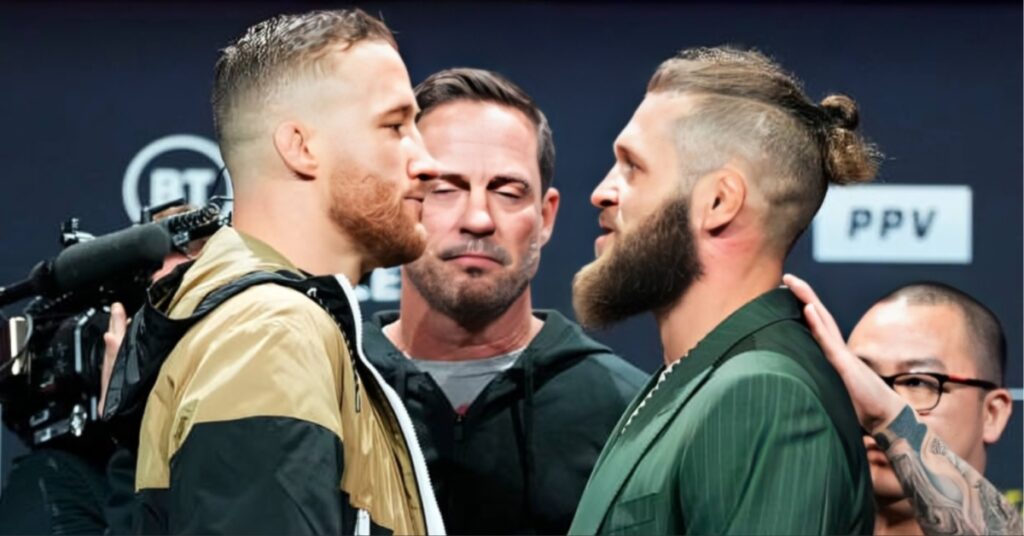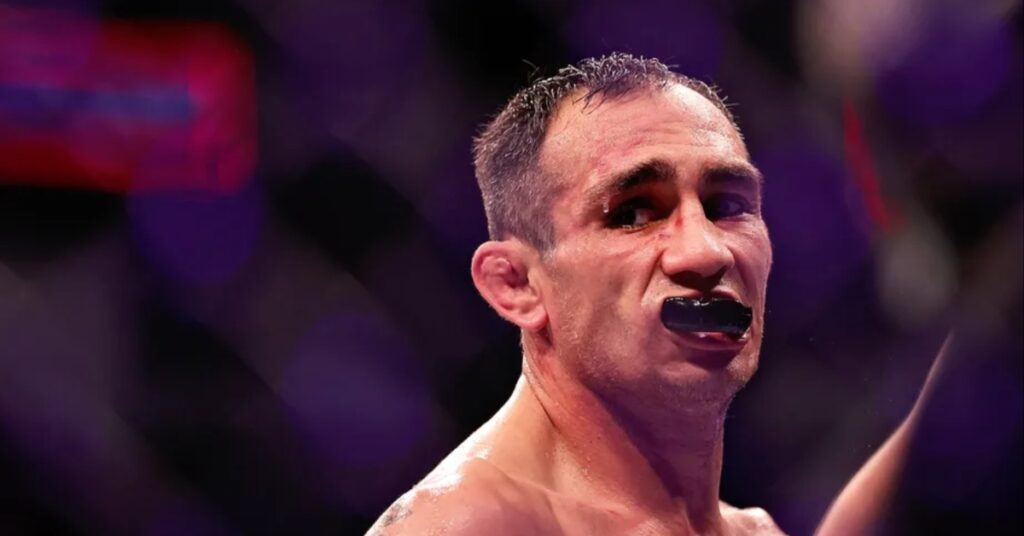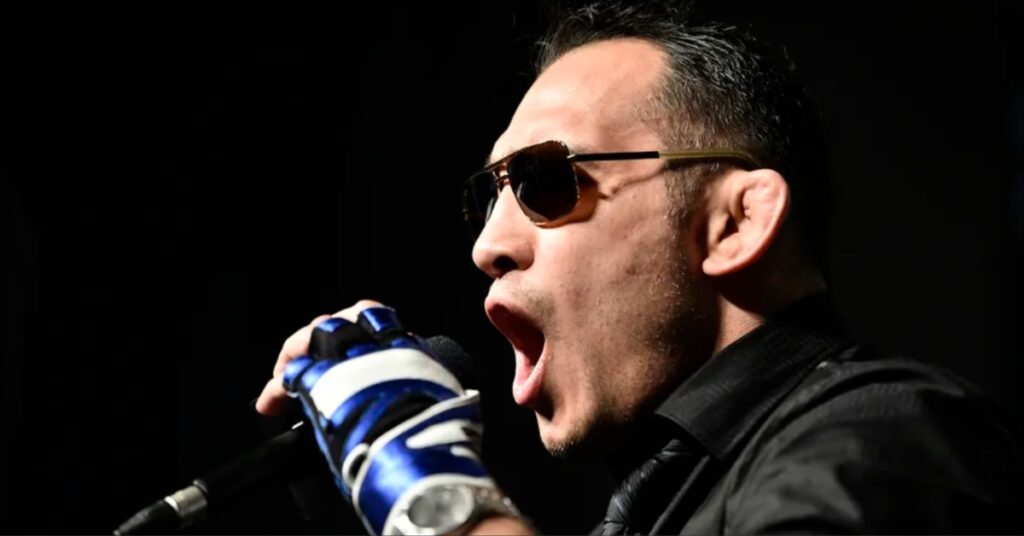14 UFC Champions Who Lost Their Title Without Being Defeated
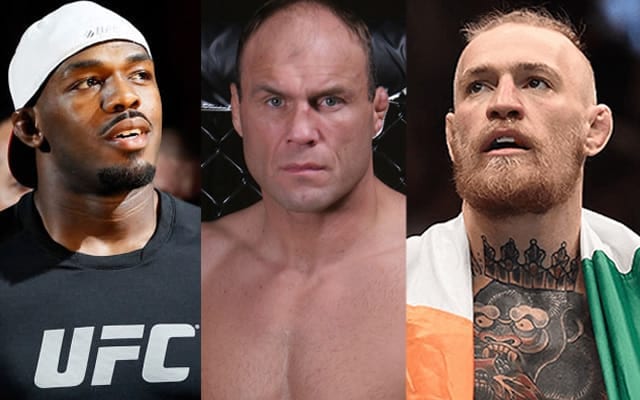
MMA Fighters have to run the gauntlet inside the Octagon many times in order to win the most coveted prize in the sport – a UFC championship title, but sometimes the belt they fought so hard to claim can then slip from their grasp again for reasons other than having suffered a knockout, submission or decision loss.
Of course, over the years there have been numerous examples of champions being dethroned after it’s emerged that they’d used performance-enhancing drugs, but that’s far from the only reason.
From career-threatening injuries to behind-the-scenes fallouts and even examples of fighters willingly walking away from the belt, join us as we explore 14 examples of UFC stars whose days as champions suddenly came to a screeching halt.
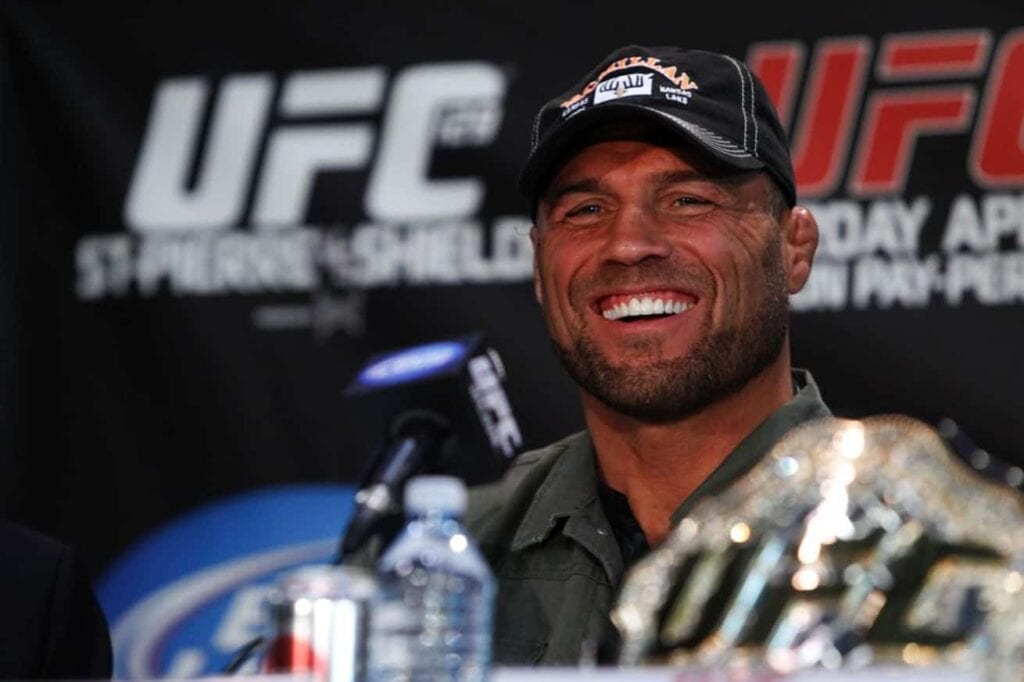
Randy Couture
Randy Couture made an immediate impact in his MMA debut at UFC 13 back in 1997, winning the one-night tournament that evening, before going on to claim the heavyweight title later that same year with a win over Maurice Smith at UFC: Japan.
Next up the UFC planned to have Couture fight Bas Rutten, but in a surprise move, Couture made a bold decision to leave the UFC to sign for Japanese promotion RINGS instead and was stripped of his title.
Couture did eventually return to the UFC in the year 2000 however and quickly won back the heavyweight title, and in total over the course of his Hall Of Fame career in the Octagon he’d win the heavyweight title on three separate occasions, as well as claiming the light heavyweight belt twice.
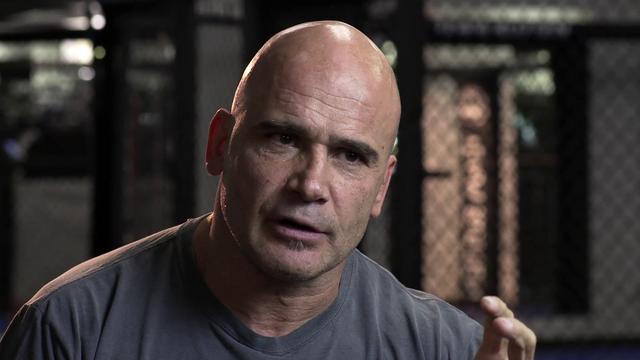
Bas Rutten
Bas Rutten was already a big star in Japan when he signed with the UFC in 1998, and just a couple of fights later he was crowned the promotion’s heavyweight champion after a controversial split decision victory against Kevin Randleman.
A skilled and charismatic fighter, Rutten had all the ingredients to be a huge star for the promotion, and rather than looking to defend his new title, ‘El Guapo’ decided to vacate it in order to attempt to win the middleweight title (nowadays known as light-heavyweight) instead – a bold decision that would have made him the first fighter to win a UFC title in two separate divisions.
Unfortunately, Rutten’s many years of fighting prior to arriving in the Octagon were rapidly catching up with him and during training for his next fight he suffered serious injuries to his neck, knee and bicep that led to him retiring from the sport under doctor’s orders.
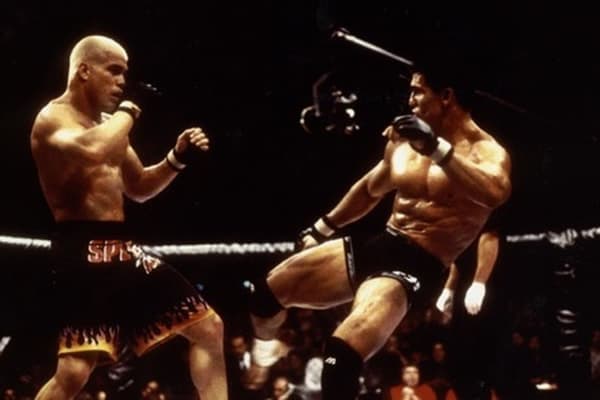
Frank Shamrock
A veteran of the Pancrase organization, Frank Shamrock finally followed in his brother Ken’s footsteps and joined the UFC in 1997, where he became an instant hit.
In his first fight at UFC Japan, Shamrock defeated Kevin Jackson to become the UFC’s new light-heavyweight champion and he’d go on to defend the belt four times over the course of the next two years.
After defeating Tito Ortiz at UFC 22 in September of 1999, Shamrock was hailed as the greatest fighter in UFC history by its owner, Bob Meyrowitz.
However, Shamrock then made a shock announcement that he was going to vacate the title and retire.
Years later Shamrock explained that he made the decision because he believed that MMA was on the verge of dying out at the time and he didn’t want to risk, “crippling myself and jeopardizing my brain when no one is going to see it and no one is going to care.”
He eventually returned to the sport a few years later, but he didn’t see eye-to-eye with the UFC’s new owners, Zuffa, and with bad blood forming between the two parties he would never have an opportunity to fight in the Octagon again.
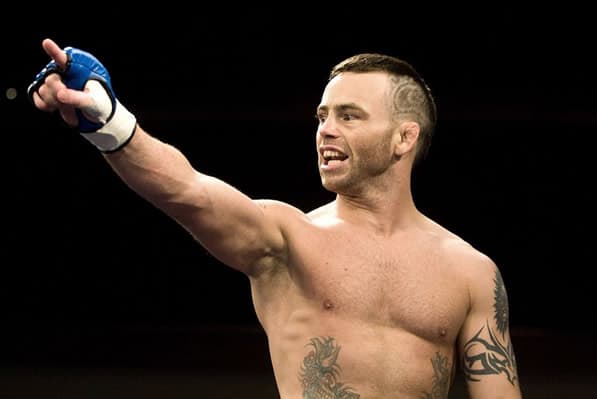
Jens Pulver
Jens Pulver holds the distinction of being the UFC’s first-ever lightweight champion and successfully defended the title twice against Dennis Hallman and BJ Penn.
Despite the fact he was doing big things in the UFC, Pulver’s paychecks left a lot to be desired, taking home just $22,000 for his main event win over Penn at UFC 35, and so when his contract came up for renewal he expected a big increase to put him more in line with other major UFC champions like Randy Couture and Tito Ortiz, who were getting six figure sums per fight.
However, when the UFC offered him a sliding scale that would see him earn only $30,000 to show and $30,000 to win by the end of his next three-fight deal, negotiations broke down and Pulver would ultimately make the fateful decision to leave the promotion, resulting in him being stripped of his title.
Pulver did come back to the UFC in 2006 after several years fighting for other promotions, but by then his best days were behind him and he suffered back-to-back losses before being released.
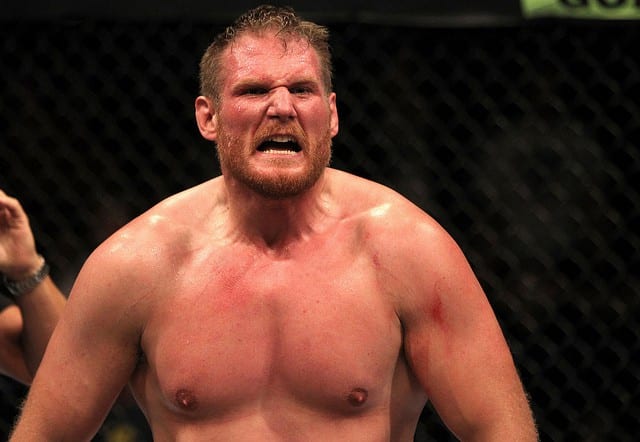
Josh Barnett
Josh Barnett’s short-lived tenure as the UFC’s heavyweight champion in 2002 ended in disgrace after he tested positive for steroids.
Barnett won the title in March after a second round TKO victory over Randy Couture at UFC 36, but a month later it emerged that he’d tested positive for Boldenone, Nandrolone and Fluoxymesterone.
As a result he was suspended for six months, stripped of his title, and subsequently left the UFC, though he would eventually return over a decade later.
Remarkably, Barnett had actually tested positive for banned substances in his previous fight with Matt Hoffman, but on that occasion he had been let off with just a warning.
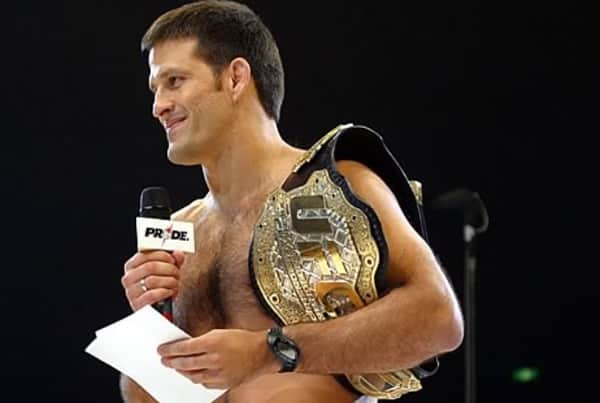
Murlio Bustamante
Murilo Bustamante claimed the UFC’s middleweight title at UFC 35 in 2002 with a TKO victory over Dave Menne and would go on to successfully defend the belt against Matt Lindland that summer.
Despite his success in the Octagon, Bustamante was unhappy with the financial terms of his deal and opted not to stick around, instead taking up a more lucrative offer with the PRIDE organization in Japan.
Bustamante would get off to a rough start under his new employer, losing three fights in a row.
Nevertheless, he’d continue to fight for PRIDE for four years in total, but never returned to the UFC.
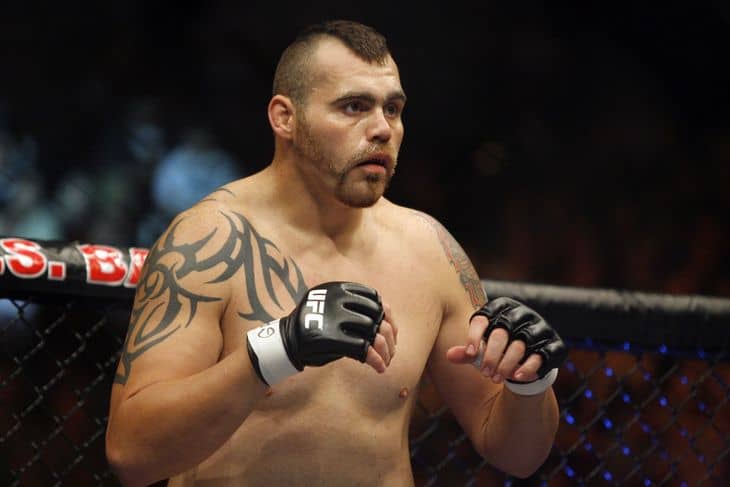
Tim Sylvia
Tim ‘The Maine-iac’ Sylvia successfully defended his UFC heavyweight title for the first time by way of a first round TKO against Gan McGee at UFC 44 in September of 2003.
However, just a few weeks later a post-fight drug test showed that Sylvia had used the steroid Stanozolol.
Sylvia admitted that he’d taken the performance enhancer, though he claimed he’d only used it to help “trim my physique” in-between fights. Nonetheless, Sylvia was stripped of his title, suspended for six months and fined $10,000.
Sylvia would continue to fight for the UFC afterwards and would eventually win the title again in 2006.
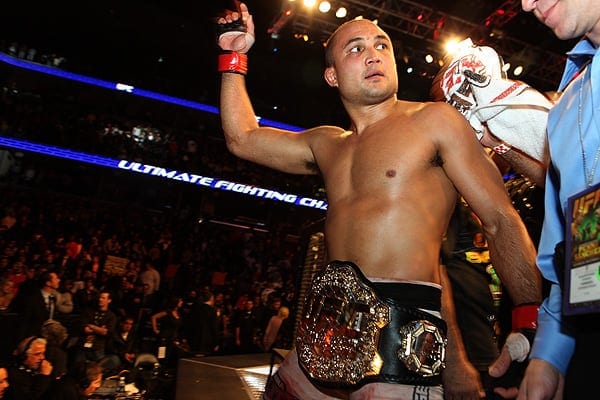
BJ Penn
BJ Penn shocked the MMA world twice in relatively short order in 2004, starting when he moved up to welterweight and earned a famous victory over long-reigning champion Matt Hughes at UFC 46.
Penn was a major star for the UFC, but that also brought attention from other promotions, and when K-1 offered him a far more lucrative deal to fight in Japan he accepted.
UFC President Dana White was incandescent with rage when he caught wind of this, yelling at the fighter in a phone call between the two that he was now, “scorched earth,” while stripping the Hawaiian of his title and vowing that he’d never be allowed to compete in the Octagon again.
White would eventually back down from that vow, with Penn returning to the UFC in 2006 and going on to win the lightweight title.
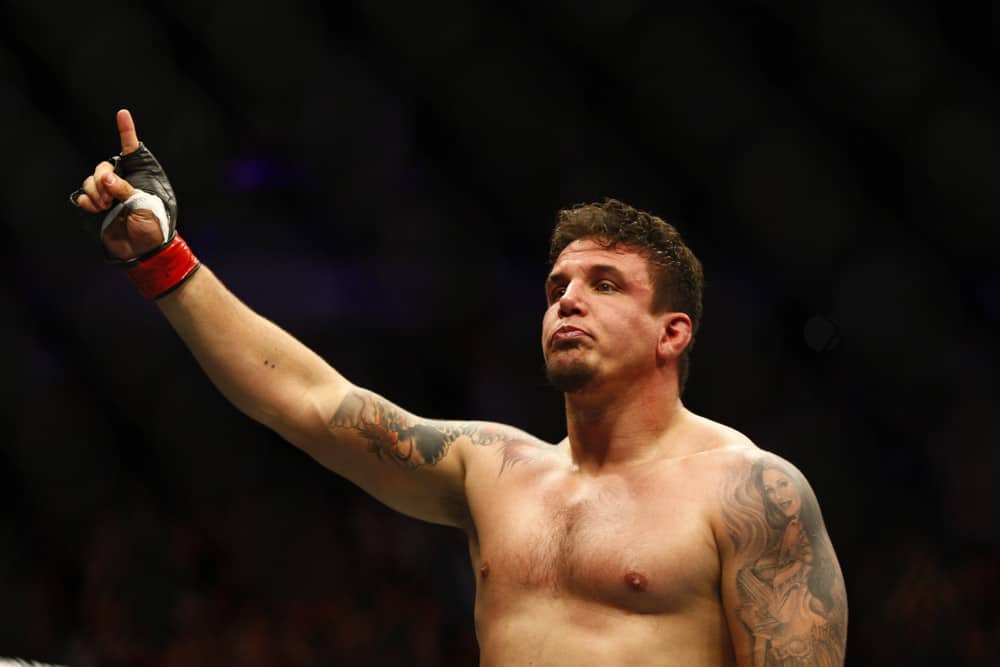
Frank Mir
Losing his UFC heavyweight title was painful in more ways than one for Frank Mir, though it had nothing to do with fighting.
Mir had won the belt after a 50 second armbar submission finish against Tim Sylvia at UFC 48 in June of 2004, but tragedy struck a few months later when Mir was involved in a traffic accident while out riding his motorcycle that left him with a leg broken in two places and severe ligament damage in his knee.
Initially the UFC created an interim heavyweight title while Mir recovered, but his rehabilitation took longer than anticipated and so almost 14 months later they decided to strip him of the belt.
Mir finally stepped back into the Octagon in 2006 and would go on to win the interim title two years later.
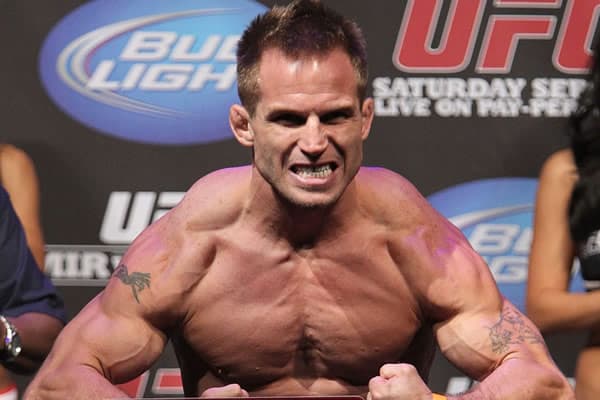
Sean Sherk
Sean Sherk won the vacant lightweight title with a decision victory over Kenny Florian at UFC 64 in 2006, and the following year he outpointed Hermes Franca at UFC 73 to retain the belt.
However, there was post-fight controversy when it emerged that both fighters had tested positive for steroids.
Sherk was initially suspended for a year, but he attempted to appeal the test result, going as far as to spend a reported $20,000 in legal fees, and was able to get his ban reduced to 6 months.
However, due to the fact he was unable to get the California State Athletic Commission to completely overturn his suspension, the UFC decided they had no option other than to strip him of the title.
After serving his suspension Sherk fought BJ Penn in an attempt to win back the title, but lost by TKO and never made it back to the belt again before retiring a couple of years later.
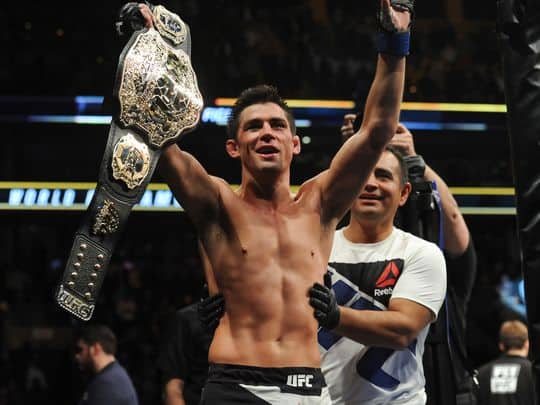
Dominick Cruz
As the UFC’s bantamweight champion, coaching opposite his biggest rival Urijah Faber in a special live season of The Ultimate Fighter on FX, and with a lucrative title fight on pay-per-view between the two set for later in the year, everything seemed to be going Dominick Cruz’s way in 2012.
However, disaster struck when the injury-prone champion suffered a torn ACL that forced him out of the fight.
Worse still, several months later it emerged that surgery for the career-threatening injury had not been successful, resulting in him having to go under the knife again, followed by another lengthy spell in rehab.
Almost two years later Cruz was all set to finally return and defend his belt when he suffered a groin injury that again sidelined him, and it was at this stage that the UFC finally made the decision to strip him of the title.
Down but not out, Cruz would eventually return to fighting on a regular basis in 2016, almost four years since his original knee injury, and remarkably was able to not only win back his title against TJ Dillashaw, but also successfully defend it later that year against his old rival, Faber.
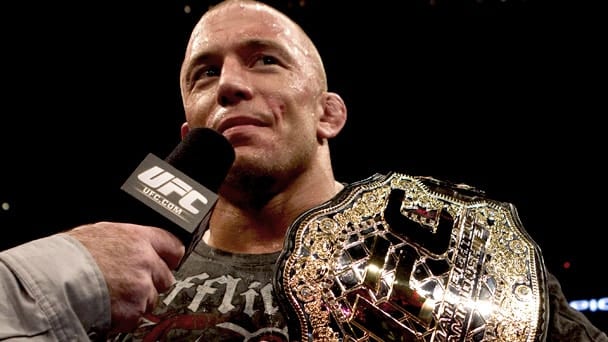
Georges St-Pierre
One of the greatest fighters the sport of mixed martial arts has ever seen, there was time when Georges St-Pierre appeared to be an unstoppable force in the UFC’s welterweight division.
After winning the 170-pound title for the second time in his career by defeating Matt Serra in April of 2008, GSP would go on to defend the belt no less than 9 times against the best the division had to offer, the second-most consecutive title defenses in UFC history.
Though he appeared to be on top of the world, the pressure of having been the champion for so long was taking a toll on St-Pierre, and so in December of 2013, a month after defeating Johny Hendricks by split decision at UFC 167, the Canadian superstar announced that he was vacating his title in order to, “take some time off.”
“I can’t sleep at night, man,” St-Pierre said at the time. “I’m going crazy. I have issues and I need to get out for a while.”
In the end it would take two and a half years later before GSP finally decided that he was ready to return to the sport, though so far he hasn’t been able to come to terms with the UFC to make that a reality.
![14 UFC Champions Who Lost Their Title Without Being Defeated 14 jon-jones-ap[1]](https://www.lowkickmma.com/wp-content/uploads/2016/07/jon-jones-ap1.jpg)
Jon Jones
Jon Jones holds the dubious distinction of being the only UFC fighter to have a title taken off him on two separate occasions, and he has no-one else to blame but himself.
Initially the long-time UFC light heavyweight champion was stripped of his title in April of 2015, days after it emerged that Jones had fled the scene of a hit-and-run accident in Albuquerque, which left the pregnant woman he’d crashed into in his rented SUV with a broken arm.
Several months later Jones pled guilty to hit-and-run charges, but a plea deal saw him avoiding having to spend time behind bars.
Jones then became the UFC’s interim light heavyweight champion after a win over Ovince St. Preux at UFC 197 in April of 2016 and appeared to be getting his life back on track.
However, he would then be stripped of that title in November after testing positive for two banned estrogen blockers prior to his headlining fight at the historic UFC 200 event, which led to him being suspended for a year.
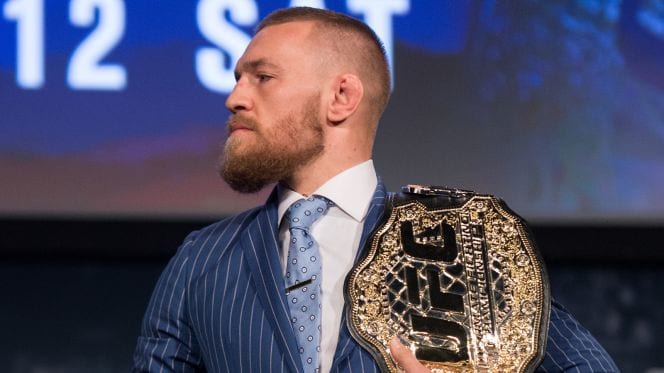
Conor McGregor
Already the UFC’s biggest star, Conor McGregor cemented his place in the history books in 2016 when he became the first fighter ever to hold two titles at the same time, adding the lightweight belt to his collection at UFC 205 after having previously won the featherweight belt at UFC 194 a year earlier.
There was a catch though. McGregor’s ambitious plans, which had even seen him fight twice at welterweight in that same year, meant that his featherweight title had yet to be defended, and with the Irish sensation revealing that he was going to take six months out while his girlfriend gave birth to their first child, something had to give.
A few weeks after his famous win at UFC 205 the UFC announced that McGregor had “relinquished” his featherweight title, with the man he’d defeated in just 13 seconds a year earlier to claim the belt, Jose Aldo, being reinstalled as champion.



